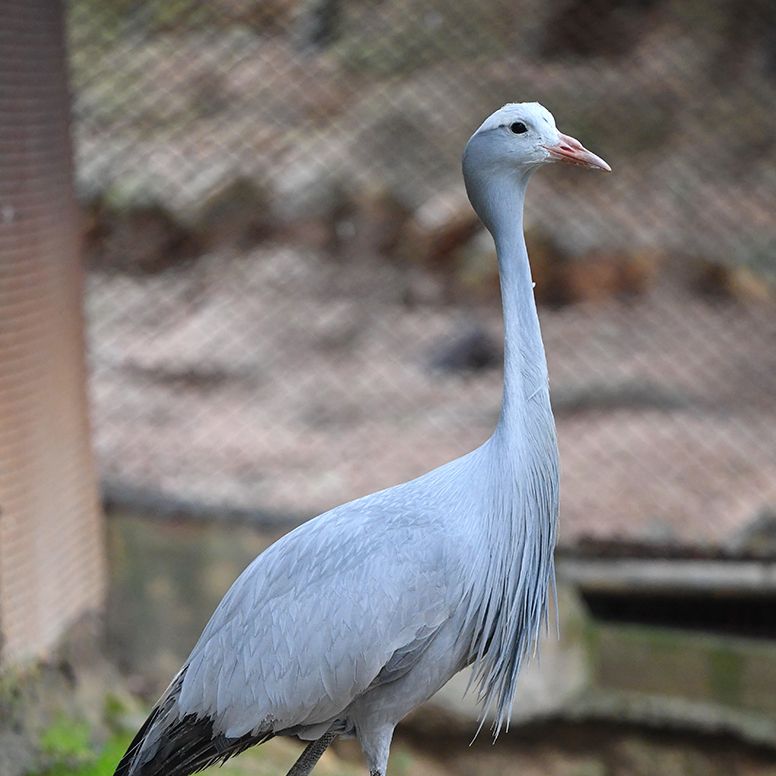
Blue Crane
Anthropoides paradisea

| Class Aves |
Diet Seeds of grasses and sedges, waste grains, insects and small vertebrates. |
| Order Gruiformes |
Behaviour
The Blue Crane perches on dry grassy uplands and spends little time in wetlands. The bird is an altitudinal migrant that generally nests on high grasslands and moves to lower altitudes for winter, spending most of its time in agricultural areas. Blue Cranes are usually seen in a family flock making up of a pair of adult cranes and their babies. Spring and summer are their breeding season. Two eggs are laid each time in a simple nest and the eggs will hatch in about a month.
Distribution
South and S.W. Africa
